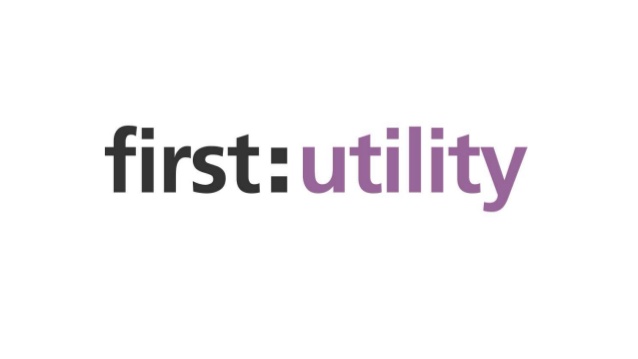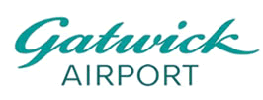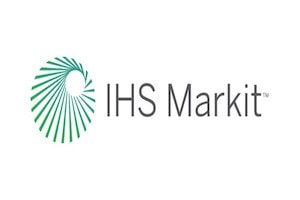You Ask, We Answer: GitLab Versus and Comparisons (GitHub, Bitbucket, Azure DevOps)
Here at Sirius, we often get asked, "Should we choose GitLab, GitHub, or Bitbucket? Which platform truly offers the best balance of features, community, and governance?". This is a very good question, and one that deserves a clear, honest answer. We understand the fascination with comparisons and the need for detailed, unbiased information before choosing a platform that dictates their entire software development lifecycle (SDLC) for years.
We want to be upfront: While GitLab champions the integrated DevSecOps suite, it might not be the universal best fit. For example, GitHub holds an unmatched position in developer mindshare, and Bitbucket is often the indispensable choice for organizations already leveraging the Atlassian ecosystem. This article will honestly compare these core contenders, detailing their architectural philosophies, CI/CD models, and specialized strengths, allowing you to understand the specific trade-offs and decide which platform's strategic focus aligns best with your organization's unique requirements. We aim to be fiercely transparent, providing you with both sides of the coin.
Philosophical Divide and Strategic Positioning
The modern DevOps platform market is defined by convergence, requiring platforms to manage the entire SDLC from ideation to deployment. The major platforms differentiate primarily based on their philosophy regarding feature delivery and their target organizational profile.
The Integrated vs. Modular Philosophy
The core architectural difference determines operational friction, dependency management, and governance.
- The Integrated Model (GitLab): GitLab's core value proposition is the integrated DevSecOps suite, prioritizing bundling features (CI/CD, container registries, essential security scans) directly into the core platform. This approach minimizes operational friction and reduces context switching, trading ultimate flexibility for standardized governance and control over the entire toolchain.
- The Modular Model (GitHub): GitHub emphasizes flexibility and customization, relying heavily on its extensive Marketplace (hosting over 10,000 reusable actions). While this enables rapid assembly of workflows, it requires organizations to manage the dependency tracking, security vetting, and maintenance of numerous external components, which increases management overhead in high-assurance environments.
Strategic Positioning of Core Contenders
| Platform | Primary Ecosystem Focus | Strategic Vertical | Key Differentiator |
|---|---|---|---|
| GitLab | End-to-End DevSecOps | Highly Regulated Enterprise | Unified toolchain, integrated security (SAST/DAST), explicit compliance support (HIPAA, SOC2, ISO 27001). |
| GitHub | Open Source / Community / Marketplace | Developer Adoption / Greenfield | Unmatched developer mindshare (over 100M developers), intuitive interface, high flexibility. |
| Bitbucket | Atlassian Ecosystem | Project Management Focus | Native compatibility with Jira and Confluence is often the deciding factor, streamlining issue tracking. |
| Azure DevOps (ADO) | Microsoft Enterprise Stack | Azure Cloud Integration | Seamless integration for organizations heavily invested in the Microsoft technology ecosystem and Azure cloud services. |
Microsoft’s Dual Strategy (GitHub vs. ADO)
Microsoft maintains two overlapping platforms to segment the market. GitHub captures the broad developer community, fostering open-source adoption. Azure DevOps retains its strategic importance by serving established, highly regulated enterprise customers requiring deep integration with existing Azure services, support for legacy version control systems like TFVC, and compatibility with older deployment methodologies (Classic Pipelines).
Core Code Management and Collaboration Features
While all platforms utilize Git, differences in support for alternative Version Control Systems (VCS) and collaboration features dictate their suitability for specialized projects.
- Non-Git VCS Support: GitLab focuses exclusively on Git. Bitbucket retains native support for Mercurial, catering to niche organizations managing legacy codebases. Azure DevOps maintains comprehensive support for Team Foundation Version Control (TFVC).
- Collaboration and Visibility: GitHub is the market leader in user interface intuition and community size. GitLab’s strength is project continuity via built-in issue tracking and wiki capabilities. Bitbucket differentiates through Code Insights, providing detailed visibility into code quality and performance metrics directly within the interface.
- Access Control: Bitbucket provides advanced branch permissions, a robust feature for enforcing mandatory code review workflows for mission-critical code.
Continuous Integration and Delivery (CI/CD) Economics
CI/CD capability is a primary driver of operational efficiency and infrastructure costs, making the choice of pipeline architecture crucial.
Pipeline Architecture
All platforms use Pipeline-as-Code (PaC) defined in YAML files, promoting versioning and reusability.
| Platform | Configuration Methodology | Governance Advantage |
|---|---|---|
| GitLab CI/CD | Centralized (.gitlab-ci.yml in a single file) | Promotes strong governance and simplifies auditing by ensuring the entire workflow is versioned consistently. |
| GitHub Actions | Modular/Decentralized (multiple YAML files in .github/workflows) | Facilitates highly modular workflows relying on community/third-party steps (Marketplace). |
| Azure Pipelines | Hybrid PaC (YAML recommended, supports legacy Classic UI) | YAML pipelines enable template modularization and sophisticated dependency management for scalable pipelines. |
Hosted Runner Quotas and Cost
The cost of hosted CI/CD compute minutes is a major commercial differentiator.
- Free Minutes: GitHub offers the most generous free hosted allowance at 2,000 minutes per month. Azure DevOps is competitive (1,800 minutes). GitLab offers a comparatively restrictive 400 free minutes per month. Bitbucket’s minimal 50 minutes per month is functionally limiting and acts as a soft-cap, compelling swift upgrades.
- Self-Hosted Advantage: For projects with massive CI/CD consumption (e.g., burning 50,000 runner minutes monthly), all platforms recommend self-hosted runners to control compute costs. Azure DevOps offers a unique advantage by providing unlimited free parallel jobs for self-hosted CI/CD runners. Similarly, running the GitLab Community Edition (CE) with self-hosted runners provides an effective zero-licensing cost solution.
DevSecOps and Enterprise Governance
The necessity to "shift left" and embed security controls differentiates GitLab's commercial model.
- Integrated Security: GitLab’s integrated security offering is a primary strength. It includes Static Application Security Testing (SAST), Dynamic Application Security Testing (DAST), dependency scanning, and container scanning built directly into the core workflow. This significantly simplifies compliance for regulated industries.
- Security Paywalling: GitHub provides powerful tools like Dependabot and CodeQL, but these are commercially separated and bundled under the optional Advanced Security add-on. This modular approach means the security workflow is segregated from the base SCM offering in terms of procurement. GitLab bundles its full security stack into the Ultimate tier, simplifying procurement for security-mandated features.
- Self-Hosting Flexibility and TCO: GitLab offers the Community Edition (CE) as a free-licensed, self-hosted option. This is crucial for large enterprises and government entities with strict data sovereignty or air-gapped environments, as it allows full platform control without incurring proprietary software licensing fees. By contrast, GitHub Enterprise Server requires a paid license for self-hosting, adding significant TCO overhead for on-premise deployments.
Strategic Conclusion and Recommendation Mapping
The optimal platform choice depends entirely on the organizational profile, balancing cost structure, feature depth, and operational governance needs. The TCO of licensing and compute often dictates the final choice.
TCO Comparison (Licensing Cost Profile)
The price disparity between mid-tier plans—GitLab Premium at $29/user/month vs. GitHub Team at $4/user/month—underscores the difference in commercial philosophy. GitLab's higher price bundles enterprise-grade CI/CD and integrated security tools upfront, making its model suitable when a unified, feature-rich collaboration environment with security is mandatory. GitHub's low base cost relies on generating revenue through compute usage (overage minutes) and high-value strategic add-ons like Advanced Security. The highest cost inflection point occurs when full DevSecOps capability is required; GitLab Ultimate (bundled security) is often weighed against GitHub's base plan plus the Advanced Security add-on.
Strategic Mapping
| Organizational Profile | Primary Recommendation | Key Rationale / TCO Implication |
|---|---|---|
| Highly Regulated Enterprise / DevSecOps Focus | GitLab | Unified toolchain, integrated security scanning (SAST/DAST), and explicit compliance support. |
| Atlassian Ecosystem Users | Bitbucket | Native integration with Jira and Confluence optimizes productivity. |
| Microsoft-Centric Enterprise | Azure DevOps | Seamless integration with Azure services; superior commercial terms for self-hosted compute (unlimited free runners). |
| Open Source Projects / Startups | GitHub | Unmatched community support, intuitive interface, and generous 2,000 free hosted CI minutes. |
| Cost-Sensitive, Compute-Heavy Projects (Self-Hosted) | GitLab CE or Azure DevOps | Lowest Total Cost of Ownership (TCO) for scaling compute due to zero licensing cost (GitLab CE) or unlimited free self-hosted minutes (ADO). |
The Governance vs. Velocity Paradox
Strategic buyers must decide between two paths: **Immediate Velocity (GitHub)** focuses on simplicity and immediate developer adoption, but leads to subsequent complexity and potentially higher TCO in managing security and external dependencies. **Long-Term Governance (GitLab)** requires an initially steeper learning curve but provides standardized operational efficiency and strong governance over the entire toolchain, mitigating complexity and long-term risk. However, organizations considering the self-managed path for GitLab must be prepared for the prohibitive TCO driven by administrative labor, which can be over $81,934 higher annually for a 500-user Premium instance compared to the SaaS model. Mandating GitLab.com SaaS is often the superior economic solution unless regulatory constraints prohibit it.
















































